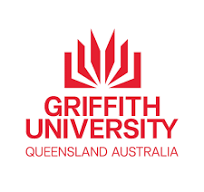
MASTER OF INTERNATIONAL LAW


Overview
1.5 YEARS
YES
AU $37,500 PER YEAR
FEB, JULY, NOV
Overview
> Join the international justice league.
> Our increasingly globalised world necessitates a greater understanding of international law, international relations and international dispute resolution mechanisms. Today's greatest problems and crises-including the COVID-19 pandemic, terrorism, global economic issues, and climate change- require international coordination rather than diverse national responses.
> In Griffith's Master of International Law, you'll be equipped with the skills to understand and apply international and globalised law principles in a range of contexts. Throughout your studies, you'll explore crucial topics such as international human rights and environmental issues, cross-border negotiations, transactions and disputes, and public international law developments.
> As a student of this degree, you'll build on your existing knowledge and experience to gain a competitive edge in the legal, business, civil society, government, engineering and other professions where greater skills and knowledge in the field of international and global law are required. You'll also benefit from a stellar student support team. On-campus students will learn from a campus close to the iconic Gold Coast and its stunning beaches, and benefit socially and professionally from a thriving, collegiate learning community.
> Taught by experienced experts, you'll gain a world-class education in a range of subjects including:
*international human rights law
*international negotiations
*international environmental law
*international family law and litigation
*international commercial litigation
*international criminal law
*transitional justice
Industry and expert connections
> Our expert staff have excellent contacts within international organisations such as the United Nations, international arbitral tribunals, the Hague Academy of International Law (including the Conference on Private International Law), major global law firms, the Australian government, international businesses and international civil society organisations.
> Additionally, we're committed to proactively seeking and providing work-integrated learning opportunities for our students, including within international organisations, such as intergovernmental organisations and international courts, global law firms, international businesses, and civil society organisations.
Graduate outcomes
> Graduates will gain a competitive advantage in a range of professional, legal and commercial employment markets through their high-level understanding of, and skills in, international, and comparative global law, principles and practice.
Global mobility
> An array of inspiring overseas study opportunities, ranging from a few weeks to a year, may be available for students in this degree. Visit Go Global Griffith for more information.
Related degrees
> Master of International Law Studies – 5738
> Graduate Certificate in International Law – 3354
> Note: Progression through this program suite is dependent upon satisfying admission requirements.
Attendance information
> This program comprises 12 courses to be completed over one and a half years with courses being taught at Gold Coast and online. It is 8 courses only for some (see eligibility below).
> If you are an International student on a student visa, you must ensure that you enrol in a way that will allow you to complete your enrolment within the expected program duration as stated on your Confirmation of Enrolment (CoE).
> International students may study this program online in their home country.
My career opportunities
> As a graduate of this degree, you'll be well placed to thrive in the increasingly complex and dynamic field of international law. Global relations and diplomacy are experiencing fragility unseen for decades as geopolitical tensions rise in the face of a worldwide pandemic, ideological stalemates over climate change and other major challenges. As such, the need for highly skilled legal professionals across the government, private and not-for-profit sectors-particularly those well versed in the intricacies of international law-will remain high and grow.
Key employment sectors
*Professional, Scientific and Technical Services
*Judicial and Other Legal Professionals
Potential job outcomes
*Arbitrator
*Intelligence and policy analyst
*Government policy and legal adviser
*Diplomacy
*Civil society strategist
*International organization employee
*International business-person
*International business negotiator
*Global law-firm employee
Source: Australian Government JobOutlook
Inquire Now
Entry Requirements
> To be eligible for admission to the Master of International Law, applicants must have:
> a Bachelor degree or higher from a recognised University (or another tertiary education institution of equivalent standing) with a minimum Grade Point Average (GPA) of 4.0 (using a 7.0 scale);
> OR a Bachelor of Law (Honours) from a recognised tertiary institution - these students will be eligible for 40 credit points of advanced standing;
> OR a Graduate Certificate in International Law (or an equivalent qualification) with a minimum Grade Point Average (GPA) of 4.0 (using a 7.0 scale) - students with a Graduate Certificate in International Law (or an equivalent qualification) may be eligible to receive 40 credit points of advanced standing.
> English language requirements apply to International applicants and other applicants whose previous study was undertaken in a language other than English. The minimum English language requirements for such applicants for entry to this program are as follows:
> A minimum overall band score of 6.5 on IELTS (Academic) with no sub-score of less than 6.0
> OR a minimum score of 575 on TOEFL
> OR an internet-based (iBT) TOEFL score of 79 (no sub-score less than 19)
> OR no score less than 3+ in each skill of the ISLPR (conducted by ISLPR Language Services only)
> OR a minimum overall score of 176 (no score less than 169) on C1 Advanced (formerly Cambridge Certificate in Advanced English) or C2 Proficiency (formerly Cambridge Certificate of Proficiency in English)
> OR an overall score of 58 in the Pearson Test of English (Academic) with no score less than 50.
Fees
Tuition fees
> An International student pays tuition fees.
> Students are liable for tuition fees for the courses they are enrolled in as at the census date.
> The tuition fee for students who commence their program prior to 2014 is charged according to the approved program fee for the trimester in which the student commenced the program.
> FEE (INDICATIVE): $37,500 per year
Scholarships
> file:///C:/Users/LANDMASRK%20EDUCATION/Documents/Scholarships%20and%20finance%20Griffith%20UNI.html
Popular Courses
Find your perfect course
Head Office
Kamaladi, Kathmandu
Tel: +977 14542781, 9845566225
E-mail: info@landmarkedu.com
Sydney office
46 Macquarie Street,
Parramatta, NSW
Tel: +61 415 122 814
Branch office
Tel: 056-590825
Tel: 021-590828
Tel: 977-71-591694



